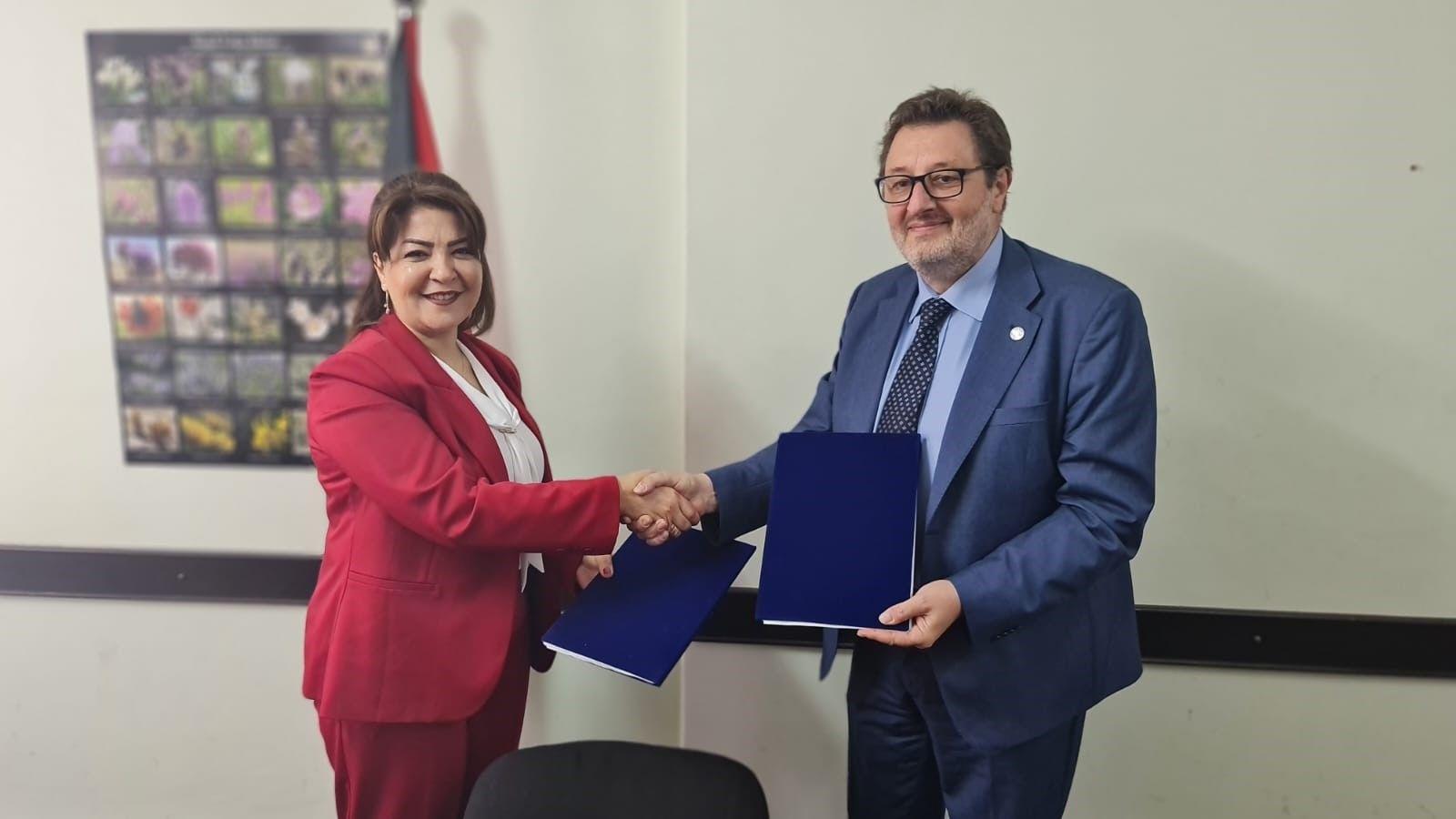New climate-smart project to deliver technology allowing improved livelihood resilience and inter-institutional cooperation in Palestine

New climate-smart project to deliver technology allowing improved livelihood resilience and inter-institutional cooperation in Palestine
17 May 2022, Palestine – The Food and Agriculture Organization of the United Nations (FAO) and the Palestinian Environment Quality Authority (EQA) signed today a project agreement to boost climate-resilient agricultural practices in the West Bank and Gaza Strip.
The three-year project is funded by the Green Climate Fund (GCF) and will be implemented in cooperation with the EQA, the Palestinian Ministry of Agriculture (MoA) and the Palestinian Meteorological Department (PMD).
“We are very glad to announce this new partnership with FAO, and our fifth GCF-funded project to date, which will enhance our national efforts towards creating an enabling environment for climate-smart agriculture in Palestine,” said Dr. Nisreen Tamimi, chairperson of the EQA.
The project seeks to increase the local capacities to monitor, report and verify agro-meteorological data through the installation of new agrometeorological systems in key representative cropping areas across the West Bank and Gaza Strip. This will be accompanied by the delivery of a series of tailored technical support activities designed to improve institutional capacities to generate and analyse data.
“A key focus for us will be strengthening coordination among all relevant actors and stakeholders to enhance their engagement in and ownership of climate-resilient agricultural approaches and technologies towards more sustainable agri-food value chains, while also piloting a model for effective climate change adaption,” said Dr. Ciro Fiorillo, head of FAO’s Coordination Office for the West Bank and Gaza Strip (FAO WBGS).
The new systems will consolidate multiple datasets to allow stakeholders such as MoA and the PDM to provide small-holder farmers more accurate information to guide farming decisions such as the timing
of the planting and harvest based on weather conditions, as well as to encourage regular data-sharing with a view to fortifying early warning mechanisms.
“The project will strengthen, in particular, the capacity of the PMD and MoA to process and transform agrometeorological data into actionable recommendations and disseminate these among agricultural producers, especially small-scale farmers, in order to enable them to adapt their activities to sudden changes in weather variables in a timely manner,” added Dr. Azzam Saleh, head of programme at FAO WBGS.
Emphasizing a cross-sectoral approach, this project will strengthen climate change adaptation planning capacity in Palestine and enhance inter-institutional collaboration to identify and streamline Climate Resilient Agriculture practices.
This project is in line priorities set out by key instruments such as the Nationally Determined Contributions report, National Adaptation Plan to Climate Change and Agriculture Sector Strategy 2021–2023, all of which underline the vulnerability of the agriculture sector to climate change.
